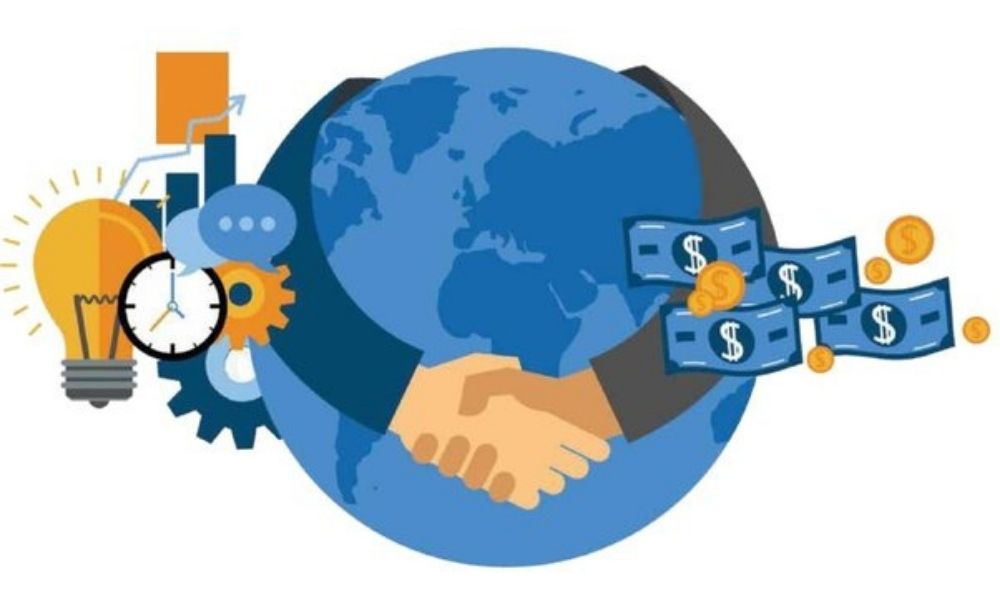Globalization is a term that has been thrown around a lot in recent years, but what does it really mean? In simple terms, globalization refers to the interconnectedness and interdependence of countries and economies around the world. It is the process by which businesses, technologies, and cultures are able to operate on a global scale, breaking down barriers and creating a more interconnected world. While globalization has its critics, there is no denying that it has had a significant impact on the world we live in today. In this article, we will explore the question of who benefits from globalization and examine the various ways in which it has affected different groups of people.
The Winners of Globalization
When discussing who benefits from globalization, it is important to acknowledge that there are winners and losers. While some groups have reaped the rewards of a more interconnected world, others have been left behind. Let’s take a closer look at some of the winners of globalization.
1. Developed Countries
One of the most obvious winners of globalization is developed countries. These are countries that have strong economies, advanced technologies, and high standards of living. Globalization has allowed these countries to expand their markets and increase their exports, leading to economic growth and job creation. For example, the United States is the world’s largest economy and has benefited greatly from globalization. In 2019, the US exported over $2.5 trillion worth of goods and services, creating millions of jobs and boosting the country’s GDP.
Read:What a wonderful world – mark hayes?Moreover, globalization has also allowed developed countries to access cheaper labor and resources from developing countries. This has led to lower production costs and increased profits for businesses. For example, many US companies outsource their manufacturing to countries like China and India, where labor is significantly cheaper. This has allowed them to remain competitive in the global market and increase their profits.
2. Multinational Corporations
Another group that has greatly benefited from globalization is multinational corporations (MNCs). These are companies that operate in multiple countries and have a global presence. Globalization has allowed MNCs to expand their markets and reach a larger customer base. It has also made it easier for them to access resources and labor from different parts of the world, allowing them to reduce costs and increase profits.
For example, companies like Apple, Coca-Cola, and McDonald’s have a presence in almost every country in the world. This would not have been possible without the advancements in technology and transportation that have made globalization possible. These companies have been able to tap into new markets and increase their revenues, making them some of the most successful and profitable companies in the world.
Read:What are the apn settings for assurance wireless?3. Consumers
Globalization has also been beneficial for consumers. With the increase in trade and competition, consumers now have access to a wider variety of goods and services at lower prices. This is because globalization has made it easier for companies to source materials and labor from different parts of the world, reducing production costs. As a result, consumers can now purchase products that were previously out of their reach, leading to an increase in their standard of living.
Moreover, globalization has also led to the spread of technology and innovation, making our lives more convenient and efficient. For example, the rise of e-commerce has made it possible for people to purchase products from anywhere in the world and have them delivered to their doorstep. This has not only increased consumer choice but has also made shopping more convenient and affordable.
The Losers of Globalization
While globalization has brought many benefits, it has also had its fair share of critics who argue that it has left certain groups behind. Let’s take a look at some of the losers of globalization.
1. Developing Countries
One of the main criticisms of globalization is that it has widened the gap between developed and developing countries. While developed countries have been able to take advantage of globalization and increase their wealth, developing countries have struggled to keep up. This is because they lack the resources and infrastructure to compete in the global market.
Read:What are keto blast gummies?Moreover, developing countries often have to compete with developed countries that have more advanced technologies and lower production costs. This makes it difficult for them to export their goods and services and earn foreign exchange. As a result, many developing countries have become dependent on aid and loans from developed countries, further widening the gap between the two.
2. Low-Skilled Workers
Globalization has also had a negative impact on low-skilled workers in developed countries. As mentioned earlier, many companies outsource their manufacturing to developing countries where labor is cheaper. This has led to a decline in manufacturing jobs in developed countries, leaving many low-skilled workers unemployed or underemployed.
Moreover, globalization has also led to the rise of automation and artificial intelligence, which has replaced many low-skilled jobs. This has further exacerbated the problem, leaving many workers struggling to find employment in a rapidly changing job market.
3. Local Businesses
Another group that has been negatively affected by globalization is local businesses. With the rise of MNCs and the increase in competition, many local businesses have struggled to survive. This is because they are unable to compete with the lower prices and wider variety of products offered by MNCs.
Moreover, globalization has also led to the homogenization of products and services. This means that many local businesses are forced to adapt to global trends and standards, making it difficult for them to maintain their unique identity and appeal to local customers.
The Future of Globalization
While globalization has had its fair share of critics, there is no denying that it has brought about significant changes in the world we live in. As technology continues to advance and the world becomes more interconnected, it is clear that globalization is here to stay. However, it is important to address the issues and challenges that come with it in order to create a more equitable and sustainable global economy.
1. Addressing Inequality
One of the main challenges of globalization is the widening gap between the rich and the poor. In order to create a more equitable global economy, it is important to address this issue and ensure that the benefits of globalization are shared more evenly. This can be achieved through policies that promote inclusive growth and provide support for marginalized groups.
2. Investing in Education and Training
As technology continues to advance, it is important for countries to invest in education and training programs to equip their citizens with the skills needed to compete in the global job market. This will not only help to reduce unemployment but also ensure that workers are able to adapt to the changing demands of the global economy.
3. Promoting Fair Trade
Fair trade is a movement that aims to promote ethical and sustainable practices in global trade. By supporting fair trade products, consumers can ensure that workers are paid fair wages and that environmental standards are met. This can help to reduce the negative impact of globalization on developing countries and promote more sustainable economic growth.
Conclusion:
In conclusion, globalization has had a significant impact on the world we live in today. While it has brought about many benefits, it has also created winners and losers. Developed countries, multinational corporations, and consumers have all benefited from globalization, while developing countries, low-skilled workers, and local businesses have been left behind. In order to create a more equitable and sustainable global economy, it is important to address the challenges and issues that come with globalization and work towards creating a more inclusive and fair world for all.









